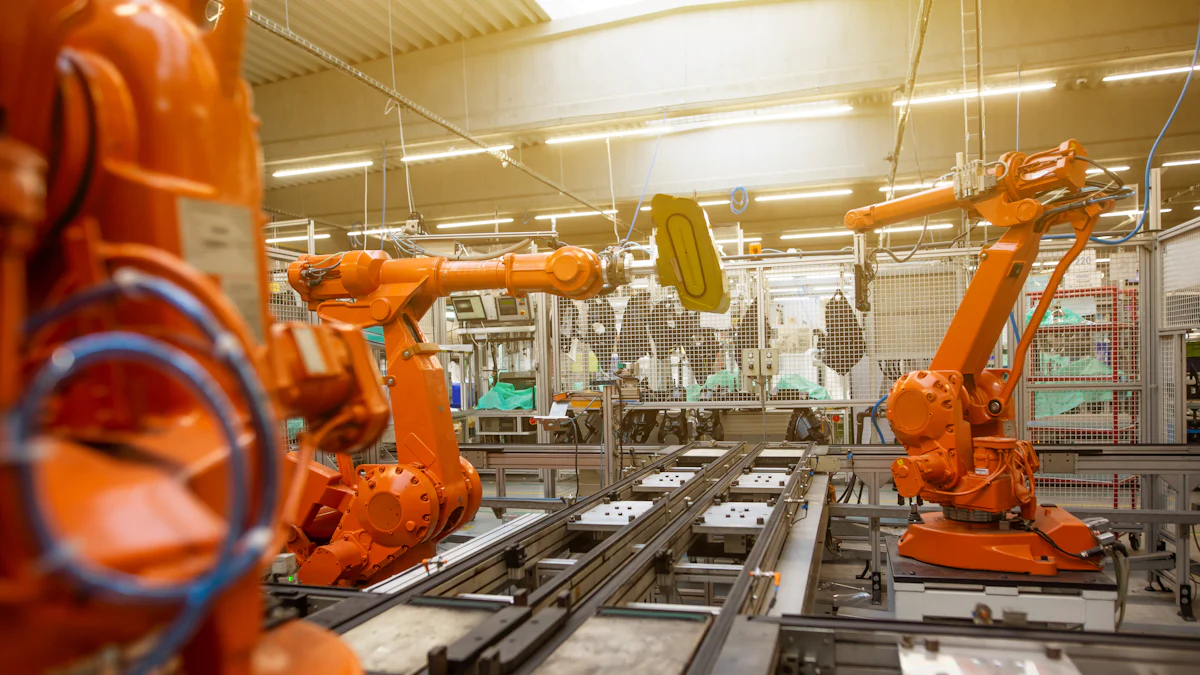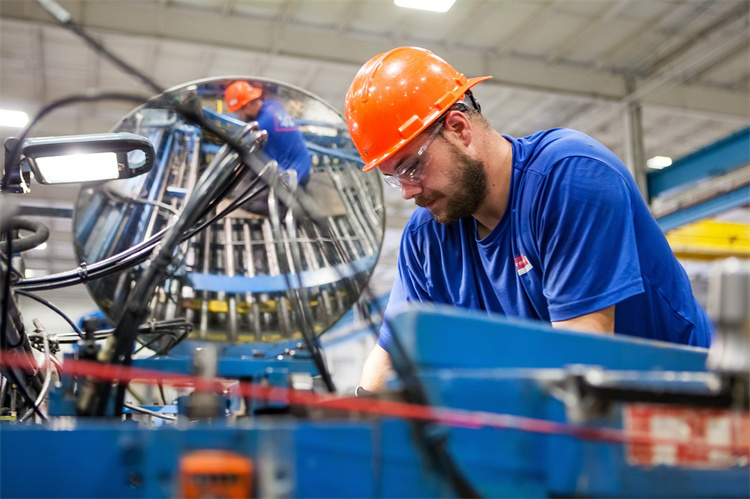Pivotal Transformations: Forecasting the Future of Manufacturing Supply Chains in the USA and Europe

Manufacturing supply chains play a crucial role in the global economy. Recent disruptions have highlighted their importance, with sectoral bottlenecks contributing significantly to U.S. inflation from 2021 to 2022. Supply chains in the USA and Europe face challenges such as labor shortages, logistical disruptions, and geopolitical tensions. These issues impact real GDP and manufacturing output. Forecasting and adapting to future trends become essential for maintaining resilience and efficiency. Embracing technological advancements and strategic planning will drive pivotal transformations in manufacturing supply chains.
Pivotal Transformations in Manufacturing Supply Chains

Current State of Manufacturing Supply Chains
Overview of Supply Chains in the USA
Manufacturing supply chains in the USA face significant challenges. Economic uncertainty and labor shortages create bottlenecks. Geopolitical tensions further complicate logistics. Companies must navigate these issues to maintain operational efficiency. The USA has adopted a model focused on diversification. This approach aims to mitigate risks associated with global disruptions.
Overview of Supply Chains in Europe
European supply chains exhibit unique characteristics. Collaboration plays a central role in their operations. European companies often engage in partnerships to enhance resilience. The region also emphasizes sustainability and green practices. These efforts aim to reduce environmental impact. Europe's supply chain model differs from that of the USA. The focus on collaboration and sustainability sets it apart.
Technological Advancements Shaping the Future
Role of Automation and Robotics
Automation and robotics transform manufacturing supply chains. These technologies enhance productivity and reduce labor dependency. Automated systems streamline operations and increase efficiency. Robotics perform tasks with precision and consistency. Companies adopting these technologies gain a competitive edge. Automation reduces human error and improves quality control.
Integration of Artificial Intelligence
Artificial Intelligence (AI) revolutionizes supply chain management. AI tools provide superior recommendations for decision-making. Machine learning algorithms analyze vast amounts of data. This analysis helps predict demand and optimize inventory. AI also enhances supply chain resilience. Companies using AI can adapt quickly to changing conditions. The integration of AI drives pivotal transformations in the industry.
Strategic Planning for Future Supply Chains
Importance of Digital Transformation
Digital transformation plays a crucial role in future supply chains. Companies must adopt digital tools to stay competitive. Technologies like AI and machine learning offer significant benefits. Digital platforms improve communication and coordination. These tools help navigate economic uncertainty and labor shortages. Embracing digital transformation ensures long-term success.
Sustainable Practices and Green Supply Chains
Sustainability becomes increasingly important in supply chain management. Green practices reduce environmental impact and enhance brand reputation. Companies must adopt eco-friendly strategies to meet regulatory requirements. Sustainable supply chains attract environmentally conscious consumers. Implementing green practices also reduces operational costs. Sustainability drives pivotal transformations in the industry.
Regional Comparisons and Collaborations
USA vs. Europe: Strengths and Weaknesses
The USA and Europe exhibit distinct strengths and weaknesses in manufacturing supply chains. The USA focuses on diversification. This approach aims to mitigate risks from global disruptions. Companies in the USA prioritize technological advancements. Automation and AI play significant roles in enhancing productivity. The USA's supply chain model emphasizes efficiency and innovation.
Europe, on the other hand, adopts a collaborative approach. European companies often engage in partnerships to enhance resilience. Sustainability and green practices hold paramount importance in Europe. These efforts aim to reduce environmental impact. Europe's focus on collaboration and sustainability sets it apart. This model fosters a robust and eco-friendly supply chain network.
Transatlantic Collaborations
Transatlantic collaborations offer immense potential for manufacturing supply chains. The USA and Europe can leverage each other's strengths. Collaborative efforts can enhance resilience and efficiency. Joint ventures can drive technological advancements. Partnerships can foster sustainable practices across regions.
Transatlantic collaborations can address shared challenges. Economic uncertainty and labor shortages impact both regions. Collaborative strategies can mitigate these issues. Companies can share best practices and innovative solutions. These efforts can lead to pivotal transformations in supply chains.
The blog has explored the pivotal transformations shaping manufacturing supply chains in the USA and Europe. Key points include the role of automation, AI, and digital transformation. Staying ahead of trends ensures resilience and efficiency. The future of manufacturing supply chains will depend on embracing technological advancements and strategic planning. Companies must adopt innovative practices to navigate economic uncertainties and labor shortages. Collaboration between the USA and Europe can drive significant improvements. The focus on sustainability and green practices will also play a crucial role. These efforts will lead to robust and eco-friendly supply chain networks.
See Also
Revolutionizing Logistics with AI in the Supply Chain
Future-Proofing Supply Chain Management with Digital Twins
Revolutionizing the Supply Chain through Robotics Exploration
Embracing Tech-Driven Solutions in Navigating Supply Chain Changes
